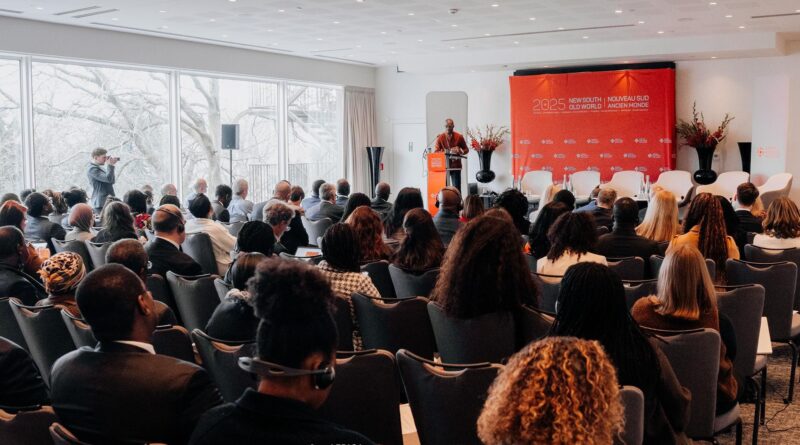Africa Political Outlook Summit establishes new blueprint for global governance reform as Giant South’s economic influence grows.
The third edition of the Africa Political Outlook Summit finished last week in Brussels, reinforcing its importance as a platform for developing Africa’s contribution to global governance and addressing power shifts in the international system.
Under the compelling topic of “New South, Old World,” the two-day summit brought together high-level officials, industry executives, and international institutions to discuss the underlying power shifts that are altering the global order.
In his opening remarks, H.E. Moses Vilakati, African Union Commissioner for Agriculture and Rural Development, representing recently appointed AU Commission President H.E. Mahamoud Ali Youssouf, declared,
“Africa is not just adapting to global transformations; we are actively shaping them.” He also highlighted Africa’s ability to address global food security issues through innovation and development.
The summit’s primary issue was the urgent need to modernise international financial architecture. Camilla Brückner, Director of the UNDP Brussels Office, highlighted an alarming gap in reaching the Sustainable Development Goals (SDGs), with only 17% now on track worldwide.
She encouraged action to reduce the financial gap by using “innovative mechanisms that attract sustainable investment and ensure reliable energy access—a critical enabler of the broader SDG agenda.”
Dr. Rania Al-Mashat, Egypt’s Minister of Planning, Economic Development, and International Cooperation, has criticised governance arrangements in global financial institutions.
She pointed out that, whereas developing nations account for 75% of membership in agencies such as the IMF, they only have 37% of voting rights. ‘This discrepancy is not an abstract matter,’ she contended. ‘It is a demand to move beyond rhetoric about inclusiveness and towards real power sharing.’
The meeting also included lively talks about Africa’s triple revolution in agricultural sovereignty, energy transition, and sustainable industrialisation, called “the Great Green Leap”.
Ambassador Al-Moustafa Kouyateh, Liberia’s President Joseph Nyumah Boakai’s Special Envoy for International Investments, outlined Liberia’s vision for agricultural self-sufficiency through its National Agricultural Fund—a model that brings together local farmers, investors, and public resources to achieve sovereignty by producing what the country consumes.
Against the backdrop of significant upheavals in international development, speakers urged a fundamental paradigm shift in North-South relations. According to Papa Amadou Sarr, director of partnerships for the French Development Agency, Europe needs to “change the paradigm to: invest, invest, invest.”
The donor-recipient paradigm must be abandoned, stressed EU representatives debating the Global Gateway initiative, which intends to raise €150 billion for infrastructure investment through creative public-private partnerships.
Younous Omarjee, Vice-President of the European Parliament, issued a strong plea for a fresh perspective: “Today, we must see Africa for what it truly is: a continent of the future, a geopolitical power in the making, and a key player in the twenty-first century.” It should no longer be regarded through the antiquated lenses of condescension, dependence, or paternalism.
The summit also focused on specific and forward-thinking sectoral issues, such as Africa’s participation in the artificial intelligence race. Samson Itodo, Executive Director of Yiaga Africa and a member of the African Union Working Group on AI in Peace, Security, and Governance, discussed how grassroots initiatives are harnessing AI to better governance.
Ambassador Bitenge Ndemo made a passionate call to accelerate AI adoption in Africa, saying, “We need to emphasise that we need to leverage AI to move faster.” He underlined the widespread adoption of AI throughout Africa, particularly in health, agriculture, and education.
The Africa Political Outlook Prize for Leadership, Governance, and Impact honours three great leaders who have made major contributions to Africa’s progress in peace, inclusive prosperity, and local development.
This year’s recipients include Myriam Dossou d’Almeida, Vice-President of Togo’s National Assembly and former Minister of Grassroots Development, for her work advancing health insurance;
Dr. Rania Al-Mashat, Egypt’s Minister of Planning, for promoting inclusive prosperity; and Jean-Yves Ollivier, of Foundation Brazzaville, for his historic peace mediation efforts in ending apartheid in South Africa and resolving conflicts in the Democratic Republic of Congo.




